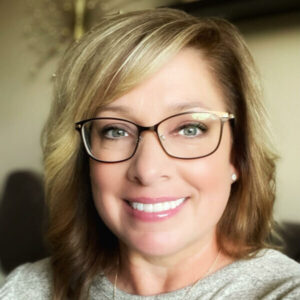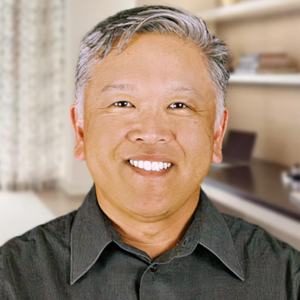Can you buy a dental practice and house at the same time?
This comes up a lot when buying a dental practice. Typically, the dentist is relocating to a new city, and because they’re buying a practice, feel a sense of arrival and want the same permanence at home that they feel with work.
After years and years of school, probably some moving for an associateship or two, and watching non-dental friends the same age buying houses, a lot of dentists are itching to buy that home the second they buy their practice.
Totally normal.
There’s good news and bad news.
The good news is that it can be done. The bad news is that it’s probably better to rent for a year or so.
Why it’s so hard to buy BOTH a house and a practice at the same time
The problem most buyers run into when moving and buying a practice is the rules of underwriting for the two types of loans.
The rules of getting a dental practice loan are pretty straightforward. Have good credit, have some cash, be able to show good production history and buy a decent practice. Those are the 4 things that a bank underwriter is going to look at before they get out their checkbook for you to borrow money for a dental practice.
The rules of getting a home loan are also fairly well known. Have good credit, buy a house without major issues, be able to show how you’ll pay for the loan and have a down payment.
The problem is that the rules for both loans interfere with each other.
When you apply for both types of loans you’re typically filling out an application at the beginning of the process. At the end of the process, the bank will then verify the information you provided in the application.
So you tell the dental lender “my housing costs are x, and my credit report looks like y” in the application process. Then you go get a mortgage and suddenly you look very different on a credit report. You used a large portion of the cash you told the dental lender you have for a down payment on the house. Now, not only is there less cash than was originally reported, there is another major change to the credit report. That change is material and is treated as a big deal at the bank doing the practice loan.
Similarly, if you tell a mortgage company, “my income is x and I work at y” and then you quit and buy a practice, you suddenly look very different on paper. The bank is left thinking, “How do we know the doctor is going to make any money in this new business to pay back the mortgage?”
Put yourself in the shoes of the bank underwriter. You can see why changing your cash, employment or credit situation would throw a wrench into their ability to tell the bank, “You should totally write this dentist a 7-figure check. He’s good for it!”
“But I’m a dentist,” you say, “I deserve this money!”
Because it’s so common for dentists to get practice loans it’s easy to forget that banks are loaning buyers (typically) 100% of the purchase price of the practice plus throwing in working capital for the new owner. It’s very unusual for banks to loan that much money to anyone with the only collateral being the knowledge in your head. As far as I know, plumbers and roofing contractors don’t get 100% financing. Throw a mortgage in there, and lenders get understandably more nervous.
So how do some dentists do it?
I hear you saying, “All true, Brian – but dentists have been buying practices, making good money and paying back loans forever. Shouldn’t banks have this figured out by now?”
Perhaps. And a few banks do have it figured out.
The way most dentists close on both a dental practice and a house simultaneously is that they work with a bank who has a special program for dentists and use that bank for BOTH loans.
If you know someone who closed on a practice and a house about the same time, it’s a safe bet they used one bank who has a program like this.
The pros to this approach are mainly twofold. You get both things you want – a house and a practice. And, you typically have one point of contact for both processes and only deal with one bank.
But there’s a tradeoff.
I tell buyers there are a few more cons to using the one-stop shop banks. First, the loan terms I see on both the mortgage and practice loans tend to be worse because you’re a higher risk and have fewer banks to shop against.
Second, there are fewer banks who have these programs so they can be hard to find. As of this writing (January 2019) I’m only aware of a small handful, though I also hear from bankers that banks who don’t have these programs are actively looking to add them for borrowers.
Third (and this is the big one), you’re placing an enormous bet on the purchase of your practice being successful. You’re betting that as a new owner, you’ll be able to make enough money to pay the business loan and your home loan with no issues. Oh, AND your student loans – don’t forget those.
So what should you do?
Pros and Cons of Purchasing Both a Home and Dental Practice Simultaneously
If you find one of the few lenders with these programs, should you buy a dental practice and house at the same time?
On the plus side, purchasing a home can be a way to establish yourself in a community quickly. As you introduce yourself in schools, the gym, church and other places, you can present yourself as a permanent member of the community which can positively impact business. After years and years of school and probably an associateship or two, the mental and psychological benefits of feeling “done” with moving and temporary situations can be amazing as well.
On the negative side, buying a house at the same time you buy a practice is increasing the risk that the practice purchase must work out. You are betting that the patients and staff will accept you as the new owner and continue to make the cash flow in the practice. A downturn in the economy that slows a practice’s financials might push down home prices and your ability to sell the house. The cash you put into a home down payment is now tied up and unavailable for the business or emergencies.
I counsel buyers to wait to buy a house.
I believe the annoyance of renting for a year or two is outweighed by the peace of mind you’ll get making sure you can run the practice you’re about to buy. Plus, after a year or two of seeing the income you’ll have as an owner you’ll have a better sense of where you want to live long-term and the best type of home for your personal, family and financial goals.
No matter what you do, I recommend being upfront with your main contact at whatever bank you’re using for your practice loan. Disclosing to them that you’re thinking about buying a house is not a bad thing. They will support you in your goals and will be clear about what the bank is willing to accept as a “safe” housing number and what your choices will look like. They’re looking for reasons to say ‘yes’ to you as a buyer. If they’re saying no, it might be for a reason that will ultimately protect you as a borrower.
Many buyers do purchase both the practice and home at roughly the same time, but it’s far more common to buy the practice and rent for a year or two.
If you need a referral to a bank that does have one of the mortgage + practice loan programs, don’t hesitate to send me an email brian@dentalbuyeradvocates.com. I’m happy to do what I can to help!
—————————————————————
Did you read this as an email? Please pay it forward by sharing the article with a friend. They can use this link to sign up to get awesome articles like this every week.
—————————————————————
Know someone considering buying a practice? Have them reach out directly to me via email, Brian@DentalBuyerAdvocates.com to help them through the process.
—————————————————————
Read more below about how to buy a dental practice because good advice is important!
The Quick Way to Analyze a Dental Practice For Sale
Four Common Dental Practice Transition Mistakes and How to Avoid Them
4 Things Your Attorney Should Do for You When Buying a Dental Practice







